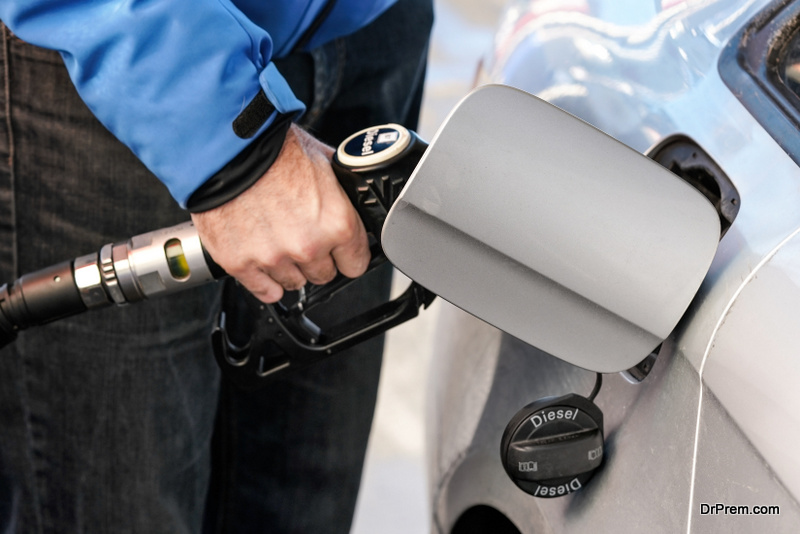London, famously known for its iconic red buses and black cabs, has long been synonymous with hectic city life. Thick plumes of diesel fumes from heavy traffic further emphasise this urban atmosphere. However, a silent but significant shift is underway. Diesel sales in London have plummeted by 40% in just four years, marking a new chapter in the city’s drive for cleaner air.
This dip in diesel fuel sales is not simply a statistical anomaly. It is symbolic of a broader movement toward sustainable transportation, driven by environmental concerns. Even now, consumers have shown an increasing preference for electric vehicles (EVs) and alternative-fuel models.
The Numbers Speak Volumes
In the wake of Dieselgate, the scandal that surfaced about Volkswagen’s intentional rigging of emission tests, diesel fuel’s public image took a huge blow. This revelation sparked global outrage and spurred the push for stringent regulations and heavy fines. The UK responded quickly with regulatory crackdowns, low-emission zones, diesel claim compensation, and rebates for electric vehicles.
Transport & Environment UK reports that diesel fuel sales in London are decreasing at double the national average rate. This decline is attributed to London’s ULEZ, implemented in 2019, which charges £12.50 for non-compliant types of diesel entering the city. The charge has now expanded to include outer London as well. The ULEZ has proven effective as diesel sales have dropped by 40% in London over four years, compared to a 20% reduction elsewhere.
Why the Decline Matters
The fall in diesel sales is a boon for public health. This drop indicates a reduced reliance on fuel, a major contributor to air pollution, particularly in urban areas. The reduced particulate matter, nitrogen oxides, and carbon monoxide levels translate into fewer respiratory and cardiovascular diseases, fewer hospital admissions, and an overall improvement in the quality of life for Londoners.
From an environmental standpoint, the decline signifies a step towards fulfilling the UK’s commitments to reducing greenhouse gas emissions. With the government’s pledge to phase out the sale of new diesel and petrol cars by 2035, the diminishing popularity of diesel fuel could signal a smoother transition to a cleaner transport sector.
Economically, this trend could spell shifts for both fuel retailers and the automotive industry. Fuel stations and service providers must adapt to this new reality, which may include reevaluating their business models and services. For the automotive sector, the waning demand for diesel vehicles will likely accelerate the industry’s pivot towards electric and other low-emission technologies.
The Impact on Consumers
For the individual consumer, particularly the diesel car owner, the decline in diesel sales prompts a range of considerations. Diesel car owners who suspect their vehicles are producing excess emissions than legally allowed are encouraged to look into filing an emissions claim. They may check their eligibility and talk to a diesel compensation claims expert at https://www.claimexperts.co.uk.
Fortunately, the rapid electrification of the automotive market means that drivers now have more choice when transitioning away from diesel. The variety of EV models, improved infrastructure, and incentives for electric vehicle adoption give consumers opportunities to make a choice that aligns with their environmental and economic priorities.
While these statistics are a snapshot in time, they indicate a trajectory that is expected to continue, if not accelerate. The sale of diesel fuel is likely to decrease further as electric vehicles become more mainstream and as the phasing out of internal combustion engines inches closer.
Policy Implications
The significant drop in diesel sales validates existing strategies and underscores the importance of proactively steering the transition to clean energy. Investments in EV charging infrastructure must be prioritised to support the shift to greener transport. Strategic placement of charging points will be crucial, ensuring they are convenient and accessible for all Londoners, irrespective of their neighbourhood or socioeconomic status.
Incentives, such as tax breaks, grants for purchasing EVs, and subsidies for business fleet electrification, will be vital in nudging consumers, especially those on the fence, to make the switch. Effective collaboration with the private sector, including energy companies, automakers, and technology providers, is essential to create an ecosystem conducive to sustainable mobility.
Looking Forward
The decline in diesel sales in London indicates a wider global movement towards more sustainable forms of energy and transport. Navigating this transition will require adaptability, foresight, and a collective commitment to a healthier planet.
For consumers, it’s an era of choice and empowerment, with the ability to make daily decisions that have a tangible impact. For businesses, it’s an opportunity to innovate, reposition, and contribute to a more sustainable economy. For policymakers, it’s a critical juncture to steer the course toward a future that aligns with the aspirations of a more environmentally conscious populace.
Article Submitted By Community Writer




